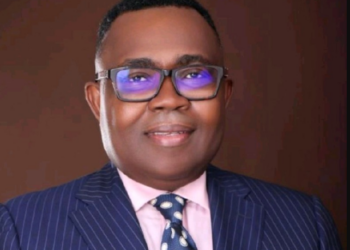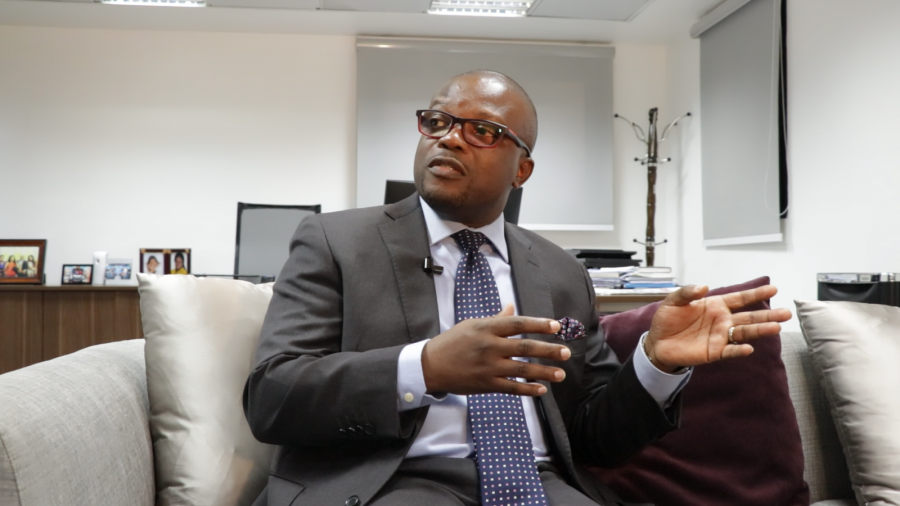- ” I have always thought the actions of men are best interpreters of their thoughts” – John Locke
The above quote resonates with the likes of the late Prof Bade Onimode, Prof. Claude Ake, Prof. Eskor Toyo, Prof Sam Aluko and the late Henry Boyo, Nigeria’s finest monetary experts.
All these great men of ideas and praxism of economics never failed to admonish the Nigerian state on how best to address the problems in our economy.
And they did their best, speaking to the powers that be, in a manner of economic patriotism. However, it seems things are getting worse, years after these men have exited the stage.
Unfortunately, the current economic woes have taken a significant toll on the living conditions of Nigerians. What is out there on the streets and corners across the states and local governments could best be described as pensive.
A situation replete with worries, complaints, despair, depression and melancholy is boldly written on the faces of young boys and girls and old, men and women.
Humorously, the slogan ” let the poor breath”, has become a recitation to mock Nigerians even as the nation exudes an ominous sign of desperation and frustration from citizens for their seeming anguish.
All this is happening because the reality from the macroeconomics, particularly with headline inflation of 28% and food inflation of over 33% and other dismal data indices from the National Bureau of Statistics (NBS) is telling the negative economic consequences of the times we live in, in this part of the world.
It is crystal clear that Nigeria’s economy over the last two decades has not been favourable enough to all citizens given the incidences of consecutive negative Gross Domestic Product (GDP) growth, that refused to increase beyond US $450 billion for a country of over 200 million population.
Although the government always claim the economy is resilient, this does not translate into better deals for the people. The economic growth has no capacity, but a mere jobless growth (unemployment 55%) and poverty-inclined rate (40.1%).
We live with the reality of businesses shutting down, deepening the unemployment pool and the Naira depreciating to its lowest in history against the US Dollar and other foreign currencies.
This is evident in a country that is abundantly blessed with both human and material resources.
It beats the imagination of a sane mind, why citizens of this nation battle with this gravity of economic challenges.
Sadly, one may be tempted to conclude that the people are cursed.
On the other hand, it’s also a clarion call to genuinely seek courage and optimism in the current dilemma because this is our home and there is no other place to run to, for some of us who have decided to stay not minding our japa citizens.
For us, we believe that with the right attitude, efforts, determination and quality policy investment that define and place integrity on the table, Nigeria can rise from despondency and gloom, of which this piece speaks.
Interestingly, a recall of the modest history of our nation cannot be overemphasized when it comes to discussing our economic trajectory. Nigerians could recall that from the 1970s to the late 1990s, the nation lost out in implementing people-centred economic development policies.
That period marked the breeding of the top echelon of a military elite class that enjoyed political power and the economic windfall from crude oil receipts and others with the promise of a return to civil rule that never materialized.
That period in our history seriously brought on board, individuals who served alongside military government as contractors. Others enjoyed luxury appointments as ministers, deputies to military governors local government executives etc.
Many of them were prepared to take over from the military later through the formation of political parties.
The military regime was said to have spent billions of naira, largely for massive capital expenditure on infrastructure developments. Their time also marked the era of abandoned elephant projects in the nation.
Instructively, their active participation in looting our national treasure remains evergreen in our minds.
Nevertheless, the military ended its obvious grip on political power on May 29th 1999, with a return to civil democratic rule, ushering the nation up to the most anticipated moment for an El Dorado of economic prosperity and unlimited development of human and material.
Alas, the entire citizenry has lived in disappointment ever since. The reason was that both citizens and government failed to capitalize on the tenets and principles of democracy, so we suffered from a combination of post-election political tension, economic flip-flops, insecurity and humanitarian crisis that threatened the foundation of our dear West African nation.
The country is famed as the most populous black nation, rich in black gold called crude oil and gas.
Fortunately, for us, the mid-2000s saw Nigeria being tagged as Sub-Saharan Africa’s fastest growing economy, but we knew it was just a gemics of media paparazzi to woe FDIs and FPIs and a leeway for the leaders to borrow money from World Bank, IMF and others.
Regrettably, today we have become a study of failed national economic development efforts.
Succinctly, poverty of governance and development is making economic analysts and professional forecasters’ work easy without stress. For instance, a recent effort of the country to re-launch a national airline as our flag carrier ended up as a national embarrassment and fraud.
Sadly, it is a case of how our government by itself frustrated several of its economic and development policies. Another case of reference is the dilemma around the four national refineries, with billions expended in the so-called Turn Around Maintenance (TAM) without results.
The nation has had to make do with fuel importation over the years bred fuel subsidy corruption and the government’s lack of transparency and accountability in the oil and gas sector.
It should be noted that the attempt above on the modest history of our dear nation since the return to civilian administration is an effort to dissect contemporary Nigeria’s economic perspectives. It reminds us that we have been missing the golden opportunity for us as a nation to attain a place of bliss.
But all hope is not lost
I intend to draw attention to important lessons from the period under review. It is a clarion call for everyone irrespective of tribe or religion to stand up as a people, resolved and determined, to rise above temporary setbacks and set our nation back on the path of economic growth, development and inclusive political progress anchored on people-centred democracy.
Given our famed, energetic disposition and drive as a people, the challenges are not beyond us, both young and old to set our economy back on the path of growth and inclusive development.
This is a task for the government and citizens alike because, for us, government and citizens are different sides of a coin that can make this economic patriotism happen.
But first, the government being the defining feature of the state shoulders a great responsibility for the growth and development of the state, as well as guaranteeing the security and socio-economic well-being of its citizens. This is well established in the relevant section of the 1999 Nigeria Constitution as amended.
Enshrined are various constitutional powers vested in federal, state and local governments and their enormity to control resources and disburse same on behalf of citizens.
This points to the fact that the government has no excuses for failing in its duty to the citizens and the country.
The government’s economic policy be it on fiscal, monetary or trade, seriously, lacks the potency to better the lives of the people.
That’s why it results in varying impacts that only the elites in our society continue to enjoy the wealth and resources of the nation.
Simply put, the economic actions of government be it at the federal, state and local governments have no bearing on the welfare of the people. And this shows there is a disconnection between the people and government.
Painfully, the people keep hearing rhetorics and pontifications of what the government wants to do. Meanwhile, the country’s challenges are not
beyond the government, the reason why the people keep blaming the government.
Take for example the issue of corruption and looting of public funds. It is a consensus that corruption is the bane of the Nigerian economy and development.
Corruption though cuts across our society but largely in our public sector. Unfortunately, it is a signpost that erodes any form of integrity, leading to a lack of transparency and accountability, as well as moral depravity among our political class and public servants.
It is high time the Nigerian government began to prove its commitment to the good of the country through economic patriotism
On the other hand, it is apt to remember that the role of the citizens is equally fundamental in national development efforts essentially as the citizens depend on the quality policy of government, to make informed contributions to economic patriotism.
Equally, Nigerians are bold and very expressive people. They are ever ready to support the government on every good course that is meant to be a panacea to our nation’s ills.
That is why the government needs to make more deliberate efforts to ensure it formulates the right policy devoid of elitist clinches.
Government doing what is right and at all times in pleasing the people, are important actions in our understanding, would bring about healthy polity and acceptable policy for the growth of the economy.
As l conclude this piece, the admonition from Theodore Roosevelt, the 26th President of the United States of America, is very apt here, ” Great thought speak only to the thoughtful mind, but great actions speak to all mankind”
What we need to do
There is no doubt about the much enthusiasm with which all Nigerians desire a better and progressive nation. The task to get this done is for us to demonstrate our love for our fatherland with commitment through integrity, honesty and selflessness.
Here, it is expected we put the nation first by doing what is right and by doing things at the right time as expected, no matter the situation.
The Nigerian government must be ready to play its constitutional role in the overarching objective to develop our nation because the task of nation-building is first what the government’s responsibility is immeasurably anchored on.
Lastly, the ultimate sacrifice by all is very key as it stands as the famed potential that can translate into concrete positive reality. And for us, a new direction towards Citizens’ and government’s Economic Patriotism is the way out.
Adefolarin A.Olamilekan
Political Economists
08107407870,08073814436




















